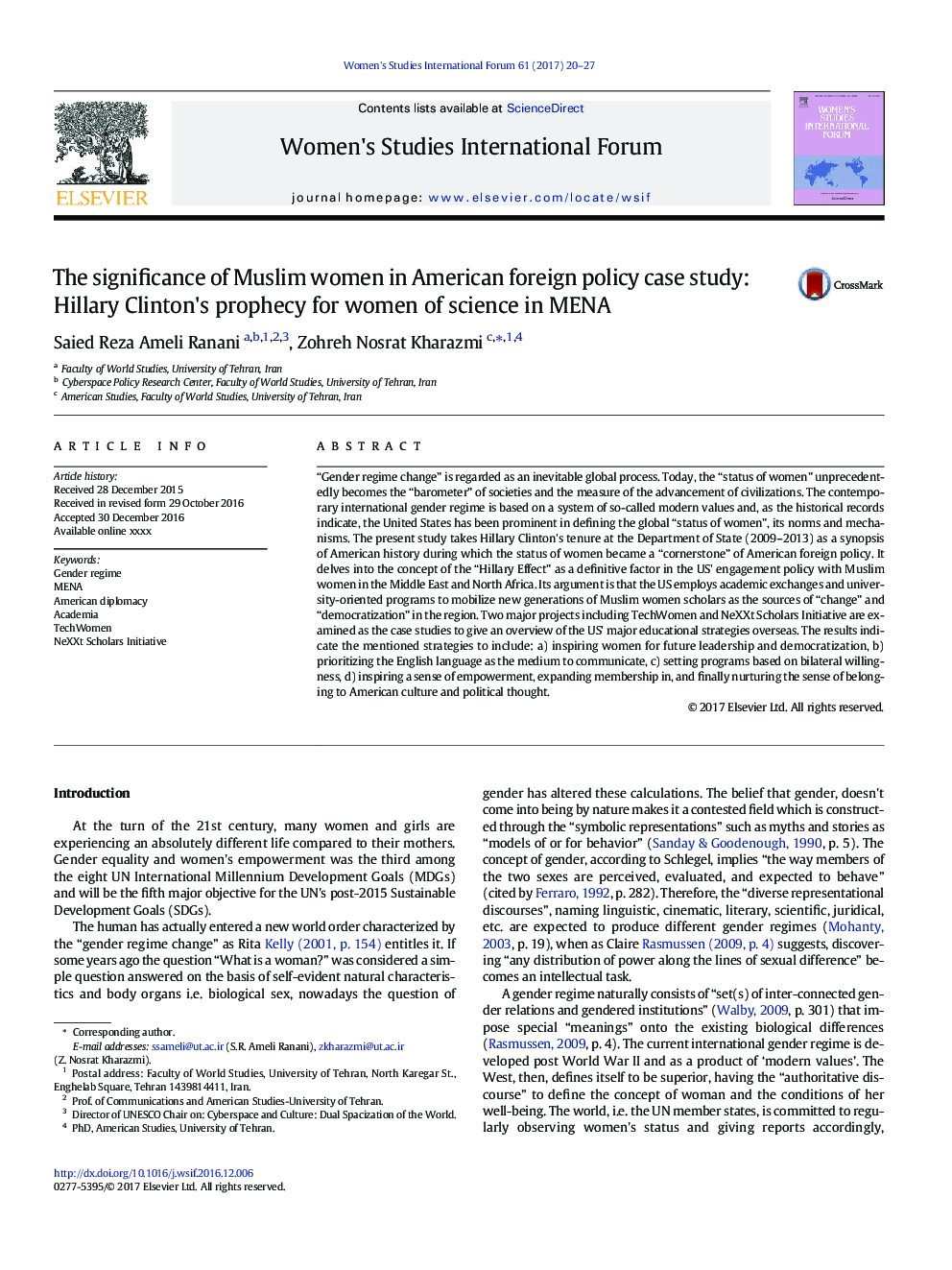| Article ID | Journal | Published Year | Pages | File Type |
|---|---|---|---|---|
| 4941930 | Women's Studies International Forum | 2017 | 8 Pages |
Abstract
“Gender regime change” is regarded as an inevitable global process. Today, the “status of women” unprecedentedly becomes the “barometer” of societies and the measure of the advancement of civilizations. The contemporary international gender regime is based on a system of so-called modern values and, as the historical records indicate, the United States has been prominent in defining the global “status of women”, its norms and mechanisms. The present study takes Hillary Clinton's tenure at the Department of State (2009-2013) as a synopsis of American history during which the status of women became a “cornerstone” of American foreign policy. It delves into the concept of the “Hillary Effect” as a definitive factor in the US' engagement policy with Muslim women in the Middle East and North Africa. Its argument is that the US employs academic exchanges and university-oriented programs to mobilize new generations of Muslim women scholars as the sources of “change” and “democratization” in the region. Two major projects including TechWomen and NeXXt Scholars Initiative are examined as the case studies to give an overview of the US' major educational strategies overseas. The results indicate the mentioned strategies to include: a) inspiring women for future leadership and democratization, b) prioritizing the English language as the medium to communicate, c) setting programs based on bilateral willingness, d) inspiring a sense of empowerment, expanding membership in, and finally nurturing the sense of belonging to American culture and political thought.
Related Topics
Physical Sciences and Engineering
Materials Science
Materials Science (General)
Authors
Saied Reza Ameli Ranani, Zohreh Nosrat Kharazmi,
